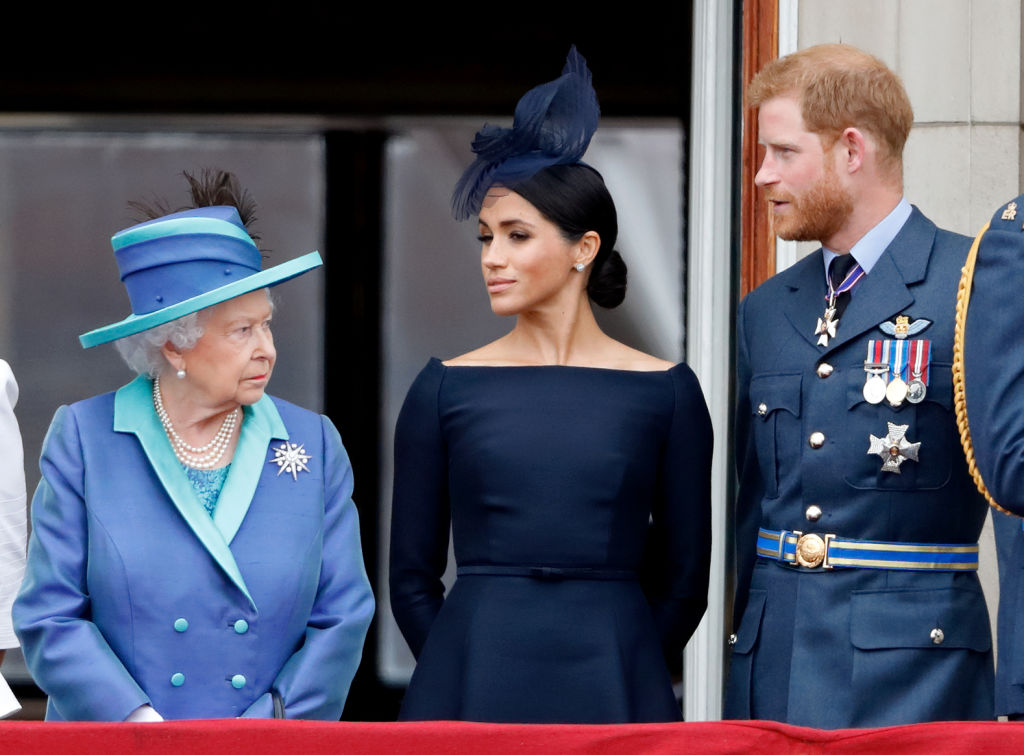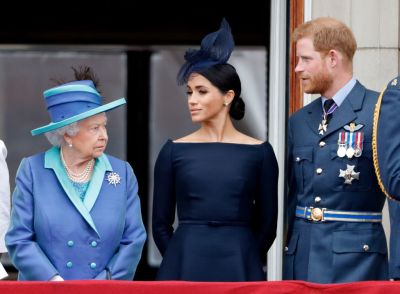I’ll confess to being a fan of the British monarchy. The Royals contribute something important, if intangible, to my country’s national life. But as I tuned in to Harry & Meghan, the recently released Netflix documentary, I also sympathized with the estranged Duke and Duchess of Sussex. The ghoulishness of the British press in general—and the cruelty and hysteria surrounding its treatment of Meghan in particular—is a source of national embarrassment.
Much of what the documentary covered is old news: the fairytale wedding; mounting pressure from palace and press; Meghan’s claustrophobia following chronic depression and a miscarriage; and fleeing to America.
The problem is that while the Sussexes had a powerful story to tell on their own terms, they trade on a cynical retelling of Britain’s history to further the audience’s sympathies. And they’re not the first to do so.
The third episode of Harry & Meghan opens with a history lesson. David Olusoga, a prominent black British historian, and Afua Hirsch, a Guardian journalist, walk viewers through the early history of the British empire—that is, the story of the slave trade.
Children in the United Kingdom are taught in school that Parliament gradually outlawed slavery throughout the British empire from 1807 to 1833. As Olusoga reminds vieweres, though, the story isn’t so simple. The 1833 Slavery Abolition Act provided for the compensation of Britain’s former slave-owners. And the legacy of slavery altered the destiny of the peoples who now settle much of the former British Caribbean. Millions of slavery’s free descendents came to Britain after the war. As a later black British historian, Stuart Hall, would say: “We’re here because you were there.”
One simply can’t understand modern Britain without understanding empire. The current prime minister, Rishi Sunak, traces his ancestry to the Indian Punjab via Kenya and Tanzania, an imperial hopscotch. Top political posts, including chancellor of the exchequer, home secretary and mayor of London, are or have recently been filled by the sons and daughters of immigrants from India, Pakistan, and Nigeria—all former colonies.
What does this imperial history have to do with the Los Angeles-born Meghan? One of her key claims is that the British press used her race against her. That seemed undeniably true of the often harsh coverage she received. But it’s one thing to criticize racist headlines and another to simplify Britain’s past for narrative convenience.
The new documentary does this by casting British history in an American mold. Hirsch compares the British Caribbean to America’s Deep South. It’s a powerful but misleading analogy: Nothing like Jim Crow emerged in Britain or its colonies after slavery was abolished. Nor did the British dwell on slavery in the way southern Democrats did in the Reconstruction era.
The comparison gives Markle’s departure from Britain a new emphasis. “Who dreamed that Britain would have a black princess?” asks Olusoga. “It was the conclusion to a history so improbable, as to be astonishing.”
Really, such a claim was gaslighting. The marriage did in fact occur, rendering obsolete Olusoga’s line of reasoning. And the framing conveniently sets up the rest of the story in the Sussexes’ favor. “Could this be the moment,” Olusoga goes on, “when the Royal Family catches up with the rest of Britain?” Alas, no. The breakdown of relations with the Royals—regardless of the particulars of the personalities involved—was ostensibly rigged from the start.
In a recent piece for the London Times, Tomiwa Owulade noted the implications behind the narrative. Markle never stood in as a representative for the subjects of Britain’s colonial past. “How can a mixed-race woman from California stand in for people in countries as widely different from each other as Antigua and Kenya, Bangladesh and Barbados?”
The implication is that racism in the United States operates the same as in the United Kingdom. Such historical gerrymandering is not uncommon. A New York Times op-ed written on the death of Elizabeth II argued that the Commonwealth, to which Owulade referred, “had its origins in a paternalistic and racist conception of British rule.” That may once have been true. It doesn’t explain, however, the endurance of the Commonwealth as a voluntary association of 56 states across the world—nor why two African nations, Gabon and Togo, recently decided to join the Commonwealth. And when Sunak became Prime Minister, people in Britain carped much more about the man’s privileged upbringing than his race. There was no Obama moment.
Cambridge historian Herbert Butterfield wrote that the historian’s chief sin was “the study of the past with one eye upon the present.” Using history in the service of a one-sided narrative of victimhood is not only self-serving but irresponsible, especially when paid historians trade in it too.





Please note that we at The Dispatch hold ourselves, our work, and our commenters to a higher standard than other places on the internet. We welcome comments that foster genuine debate or discussion—including comments critical of us or our work—but responses that include ad hominem attacks on fellow Dispatch members or are intended to stoke fear and anger may be moderated.
With your membership, you only have the ability to comment on The Morning Dispatch articles. Consider upgrading to join the conversation everywhere.